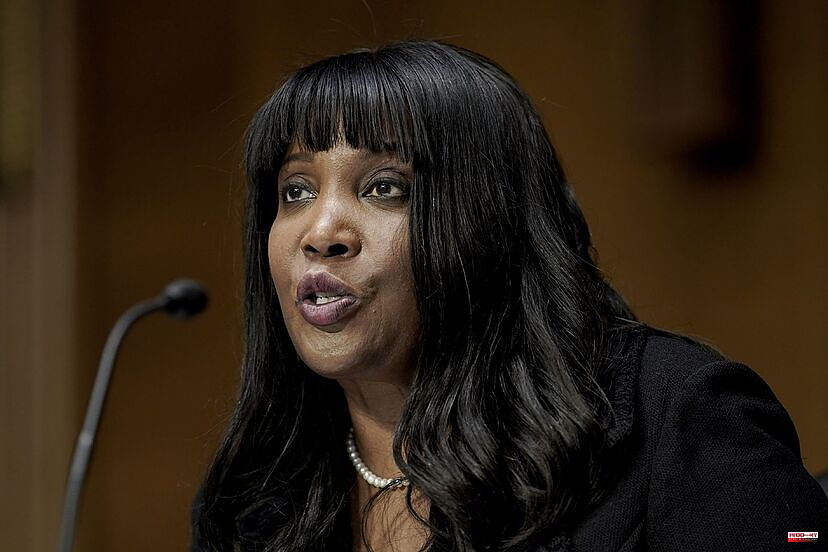The US Senate on Tuesday confirmed Lisa Cook as the first black woman to serve on the central board of the Federal Reserve (Fed). The arrival of Cook supposes the incorporation of an expert in the effects of discrimination in the economy.
The nomination was approved thanks to the tie-breaking vote of US Vice President Kamala Harris. "I vote yes and the nomination is confirmed," Harris told the upper house, split evenly between Democrats and Republicans.
This division caused a new block vote. Cook received the vote in favor of the 50 Democratic senators and against the 50 Republicans, as has happened with most initiatives since the balance of forces that emerged from the presidential elections of November 2021.
Cook's appointment was a personal choice by President Joe Biden in line with his electoral promise to place African-American women in relevant positions in the Public Administration.
This researcher from Michigan State University will occupy one of the vacant positions of the seven members of the Board of Governors of the most powerful financial institution of the first world power. The decision also clears the way for the Senate to confirm Jerome Powell as president of the US central bank.
Cook is the daughter of a chaplain and professor of nursing. Her biography tells that she has physical scars from racism from being attacked as a child while attending a formerly all-white school in the state of Georgia.
His arrival is expected to bring a new perspective to the Fed due to his investigations into how discrimination affects the US economy and how recessions do more harm to the poor. Cook studied at the prestigious Harvard University between 1997 and 2002, and was an adviser to the Treasury Department between 2000 and 2001 under President Barack Obama.
After passing through the Administration, she was a researcher at the Hoover Institution of Stanford University between 2002 and 2005. She advised the Governments of Nigeria and Rwanda on banking reform and economic development, respectively.
Republicans rejected his appointment, considering that Biden's appointments, like Cook's, will politicize the Fed's governing body at a critical time for the economy with inflation at its highest point in 40 years and millions of jobs lost during the covid-19 pandemic.
Central bank analysts, for their part, viewed these arguments as racially motivated. Biden warned hours before the vote that controlling "breakneck" inflation "starts with the Federal Reserve."
5












